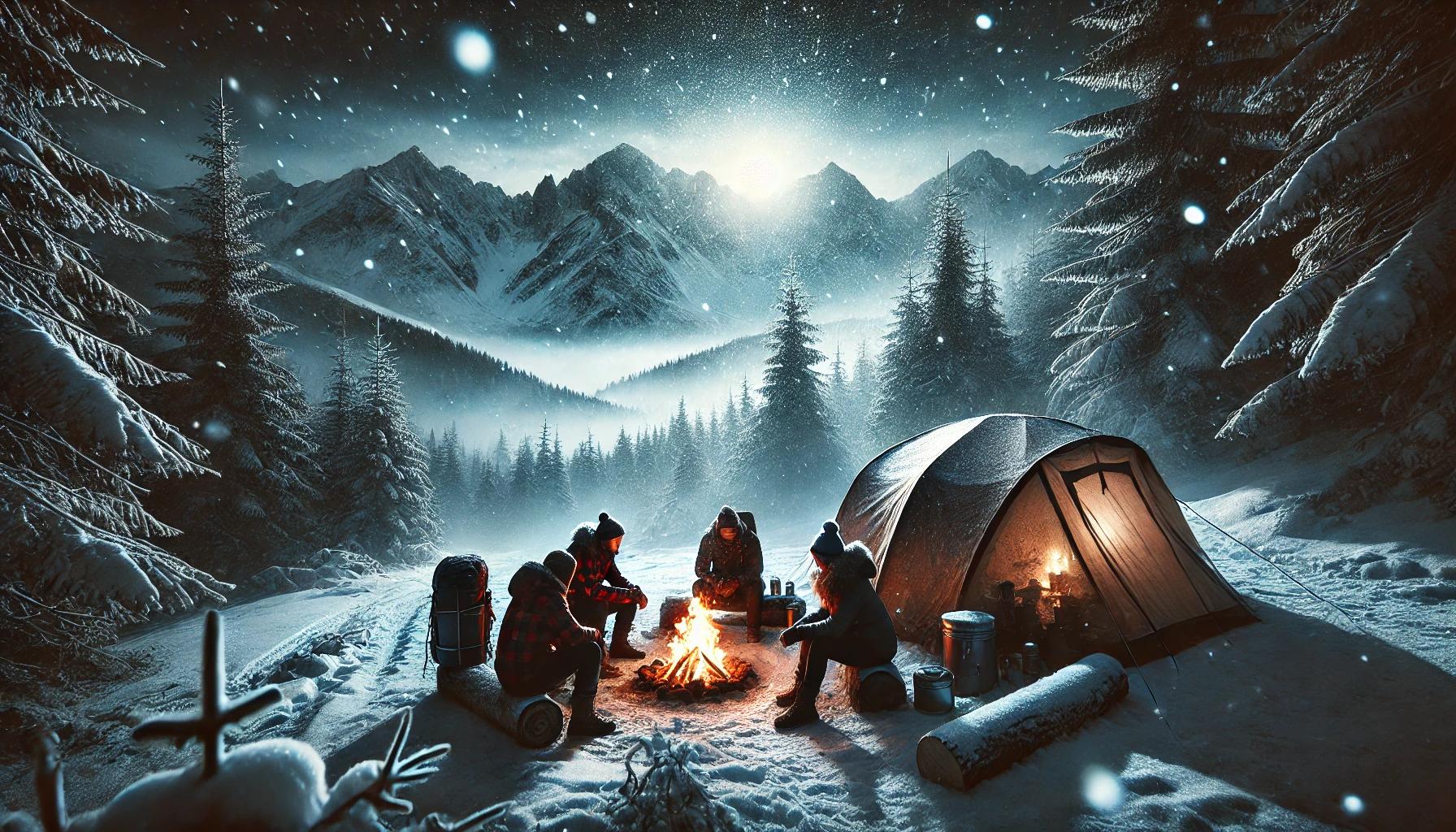Winter Camping: Adventure in Harsh Weather Conditions

What is Winter Camping?
Winter camping is an outdoor activity in cold weather conditions. It usually takes place in snow-covered areas, mountainous regions, or forests. The tranquility and peace that winter brings allow you to experience nature in a way that summer cannot. However, winter camping requires much more preparation and knowledge compared to other seasons.
Preparing for Winter Camping: Choosing the Right Equipment
When winter camping, the most important factor is choosing the right equipment. To survive in cold weather, here’s what you need to consider:
-
Sleeping Bag and Insulation: For a comfortable sleep in cold weather, you should use a sleeping bag suitable for winter conditions. Additionally, an insulated mat or inflatable bed helps protect you from cold coming from the ground.
-
Winter Camping Tent: Winter tents should be resistant to snow and wind. These tents are usually made from more durable fabrics and provide better insulation.
-
Clothing: Layering your clothes is crucial for winter camping. Thermal underwear, waterproof outer layers, and warm accessories like gloves, hats, and socks help keep your body warm.
-
Hot Drinks and Meals: It’s important to prepare hot drinks and meals to maintain body warmth while camping. Soups, hot tea, or coffee provide energy and help you battle the cold.
Safety in Winter Camping: Risks and Precautions
Winter camping comes with natural beauty, but it also brings some risks. The following safety measures will make you a more experienced camper:
-
Weather Monitoring: Before going on a winter camping trip, carefully check the weather reports for the area. You may face dangers such as sudden weather changes, avalanches, or snowstorms.
-
First Aid Kit: Winter camping is a setting where injuries can be more severe. Therefore, always carry a first aid kit and have basic first aid knowledge.
-
Insulation and Body Temperature: To prevent frostbite and hypothermia, regularly monitor your body temperature. Keeping yourself warm is essential for survival.
-
Gear and Tools: When hiking in winter conditions, using equipment like snowshoes, crampons, mountaineering boots, and an ice axe can be beneficial. Also, a GPS device and map are essential to avoid losing your way.
Benefits of Winter Camping
Winter camping is not only a physical challenge but also offers mental benefits. Being immersed in nature during winter contributes to both your mental and physical health:
-
Connecting with Nature: Winter nature is mesmerizing with its silence and beauty. Snow-covered mountains, frozen lakes, and white forests allow you to calm down and bond more deeply with nature.
-
Physical Health: Winter camping involves activities like hiking and mountaineering. These activities strengthen your muscles and improve cardiovascular health.
-
Mental Health: Spending time in nature can reduce stress and improve mental well-being. In winter, the time spent in a quiet and peaceful environment helps you unwind.
Conclusion
Winter camping is a perfect adventure for those who want to experience nature despite the harsh conditions. However, to make this experience safe and enjoyable, proper preparation, equipment, and knowledge are required. Before embarking on winter camping, plan carefully, don’t neglect safety measures, and explore the beauty nature offers. This unforgettable experience will strengthen your bond with nature and make you a stronger individual.
Remember, winter camping requires courage, but with the right preparation, anything is possible!










